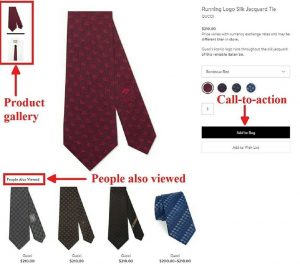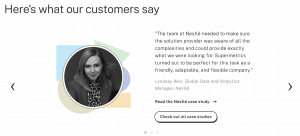Yes, having hundreds of thousands of followers and millions of views are a great achievement in itself. There’s no denying that. But what is the significance of amassing a huge number of fans and views to your brand? What does it really do for your brand’s future?
In an article by Propelrr, it is revealed that data-driven marketing helps deliver high-impact social media strategies that reward marketers and their brands with substantial revenue and brand equity. With such stakes at hand, it is clear that it’s not enough to rely on the number of your fans and followers alone, you have to seek out other data available and learn what social metrics will maximize your next strategy.
To get you all geared up and ready for your next social media strategy, we’ve compiled the 7 social media metrics that matter for you to efficiently carry out and maximize your next strategy.
Have a look.
Social Media Engagement Rate

Photo courtesy of tookapic via Pexels
Engagement is a crucial metric that you should actively monitor and improve on. Engagement are the likes, comments, and shares your Facebook post received, as well as the favorites, replies, and retweets your brand’s account enjoyed on Twitter. This is crucial as it shows how compelling your social media content to your niche is.
Tracking your engagement rate is an important social media strategy rule: it gives you a clear idea on what works and what doesn’t. It improves your strategy and makes formulation of social media marketing tactics more efficient as you’ll be focusing strongly on factors that truly matter. Marketing optimization techniques, like A/B testing, will significantly improve with substantial and relevant engagement rate metrics at hand.
Your Brand’s Social Media Demographics
Driving up your engagement metric will be an uphill battle if you don’t know who you’re targeting. Knowing what works engagement-wise isn’t enough if you’re looking to deliver high-impact marketing results, knowing which market your content works on the best is required. Gender, age, and location are some of the important social metrics to maximize your social media strategy.
Take for example a men’s lifestyle brand. One might think that the majority of fans or followers that drive up engagement are men, however a closer look would reveal that the fan base is actually dominated by women looking for the perfect gift for their male partner. This is your social media’s present content demographic.
You shouldn’t replace your target market with your content’s present demographic. The content demographic market should only augment your marketing efforts at reaching out and engaging your target market. Angle your brand in such a way that it leverages your share with the content demographic to get through your niche.
Your Brand’s Organic Performance

Photo courtesy of Rose PT via Flickr
To the dedicated social media marketers, paid social media advertising is a must-have. Having this weapon on your side is an important element in driving up brand awareness and engagement in exponential terms. Facebook has the ‘Boost Post’ feature, Twitter has the ‘Promote Tweet’, and even search engine sites have the ‘Pay Per Click’ ads among others.
While this is a great way to expand and strengthen brand equity, it is still critical that social metrics need to measure your organic results, or how you’re doing without the support of paid advertising. Knowing your organic results reveal how your brand would do on its own, highlighting your brand’s strengths and weaknesses which will be necessary factors to determine in your next strategy.
The Sentiments of Fans and Non-Fans

Photo courtesy of Feral78 via Flickr
Unfortunately, not all social media sentiments are flattering to your brand. It’s natural and should be expected. After all, we can’t win everybody. However, this shouldn’t mean that you can rest on your marketing laurels. Negative sentiments, when left unaddressed, may spillover and start a domino effect that may lead to virality that would be fatally hamper your next brand strategy. A worst-case scenario like this is the reason why social media metrics needs to measure sentiments. At best, that may mean people unfollowing your brand, which is still not a good outcome for social media marketers.
Measuring sentiment is an important aid when fine-tuning your engagement rate, your demographic appeal, and organic performance. You’ll see, positive or not, what made people click, read, or unfollow in their own words, giving you clear obstacles to work on to plug the cause of negative sentiment and to boost the positive ones.
Peak Activity Time Of Your Target Market

Photo courtesy of MIchie via Flickr
Knowing the ebb and flow of your fans and followers’ social media activities is important when it comes to maximizing your next social media strategy. Posting at the wrong time will cause your social media content to fall flat as it doesn’t have the momentum it may have when posted on time slots with the highest social media activity.
When coupled with demographic metrics, the social media metrics of time spent by users give marketers a profound understanding of the people who view and engage their content, which allows them to adjust their next strategy accordingly.
Your Competitors’ Social Metrics
With the amount of information at hand online, including your competitors’ social metrics, your next social media strategy shouldn’t come as a big surprise. Built-in social media analytics like Facebook’s Insights and other third-party social analytics tools like Sendible allows you to quickly learn what’s effective and what’s not based on their social metrics result.
Also known as benchmarking, this tactical business activity allows you to pounce on opportunities while simultaneously steering clear of potential threats thanks to the indirect information provided by your competitors. Knowing your competitors’ social metrics gives you an idea on where to differentiate and what to focus on. Best of all, it allows you to see how you’re faring by comparing your weighted results against your competitors, giving a concrete idea on which strategy to take on for your next step.
Keeping a close eye on what social metrics you need to measure are important in maximizing your next strategy. Proper collection and analysis are required to ensure that the information you’re gathering is accurate and reliable for your next social media strategy.
Data gathered from your social metrics will remove preconceived biases that may hamper your brand’s revenue and equity, another great reason why you need to check your social metrics. It’s time to adopt the data-driven marketing philosophy and kickstart 2016 with a revitalized brand and a better social media performance.
Digital & Social Articles on Business 2 Community(56)
Report Post





